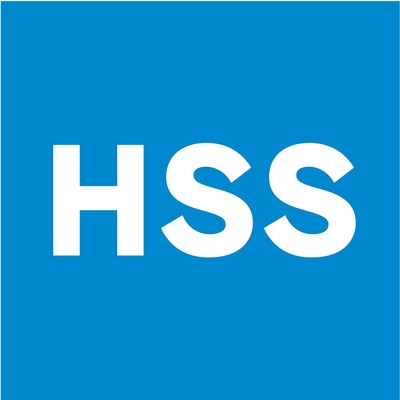A new study by researchers at Hospital for Special Surgery (HSS) in New York City presented today at the American Academy of Orthopaedic Surgeons (AAOS) 2021 annual meeting could help physicians better manage patients who experience debilitating stiffness after they undergo knee replacement surgery.
|
SAN DIEGO, Sept. 2, 2021 /PRNewswire/ -- A new study by researchers at Hospital for Special Surgery (HSS) in New York City presented today at the American Academy of Orthopaedic Surgeons (AAOS) 2021 annual meeting could help physicians better manage patients who experience debilitating stiffness after they undergo knee replacement surgery. Stiffness after knee replacement surgery, or total knee arthroplasty (TKA), is a rare but frustrating complication, affecting between 1% and 7% of patients who receive the artificial joints. "Why some people and not others experience limited range of motion after TKA is unknown," said Ioannis Gkiatas, MD, PhD, an orthopedic surgeon at the University of Ioannina, in Greece, and the first author of the new study who also recently completed a research Complex Joint Reconstruction fellowship at HSS. "The goal of the study was to see if we can help physicians predict how patients will do following the revision surgery, using information gathered before and after the procedure, to shape their postoperative treatment plans," said Dr. Gkiatas. The work was conducted under the supervision of Peter K. Sculco, MD, hip and knee surgeon at HSS, who is leading a large, ongoing study of patient outcomes after revision TKA for reduced range of motion after index TKA. For the study, Drs. Gkiatas, Sculco and their colleagues followed 19 men and women who underwent revision TKA at HSS to try to improve stiffness in patients with prior TKA. Patients underwent range of motion testing before the procedure and at six weeks, six months and one year after the operation. A healthy knee has a wide range of motion — from full extension (0 degrees) through the sitting position (90 degrees) to kneeling (approximately 140 degrees). All patients gained some mobility after the revision surgery, with the average improvement being approximately 28 degrees of motion. Most of the benefit appeared to occur in the first six weeks after the operation, then gradually tapered off over time. The researchers found that patients with the least restricted mobility experienced the greatest gains from the revision surgery. Patients who could bend their affected knee more than 82 degrees before TKA revision had an 80 percent chance of maintaining that level of mobility, or gaining flexibility in the joint, after the operation and throughout the follow-up period. However, two-thirds of patients whose range of motion was less than 64 degrees before surgery experienced regression in that mobility across all time points of the study and never attained the 82-degree threshold. "Although 82 degrees doesn't seem much more than 64 degrees, for the patient it's a significant difference. With 82 degrees you can perform the basic activities of everyday life," Dr. Gkiatas said. "With these new data, if at six weeks a patient reaches 82 degrees of motion in their knee, we can say they have an 80 percent chance of at least maintaining this range of motion one year after surgery." The results of this study provide surgeons with the information needed to educate patients with stiff TKA on expected range of motion outcomes after revision surgery. Less than 60 degrees being a poor prognostic finding. In addition, when patients return to the office for their six-week appointment after revision TKA, and have less than 82 degrees of motion, additional pharmacologic or manual knee manipulation treatments should be implemented as this patient is at a high risk for range of motion regression and inferior clinical outcome at one-year post-revision. About HSS
SOURCE Hospital for Special Surgery |





